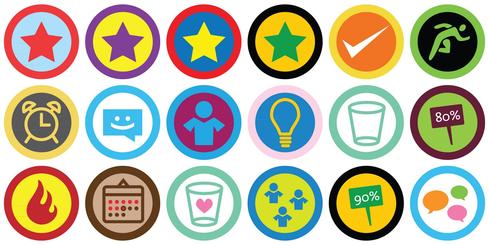For an IoT world to be a lucrative world it needs to be a fun and rewarding. Here's how businesses can learn to play.

As a kid I remember pestering my mum to buy the breakfast cereal that contained a free gift. I didn't give a hoot about the cereal; I just remember the thrill of diving into the packet for the hidden treasure. It was never much, just a small plastic toy or game. I'd then chow down the cereal so mum could buy more and I'd get another toy.
This got me thinking about the next enticing hidden treasure in the cereal aisle of our tech supermarket -- the Internet of Things. Like my childhood breakfast cereals, IoT contains some secret surprises.
And the best way to find them is to play some games.
Make me want to play
My car system plays games with me. If I go easy on the gas it tells me what an environmentally responsible driver I am. Furthermore, I get a score that I keep trying to improve -- the "four more badges and you'll have saved a small rain forest" type of deal.
[Many businesses are turning IoT hype into reality, but still want to do more. Read Internet Of Things: What's Holding Us Back]
But my car is not alone; other things in my connected world play games too. When I jump on the bathroom smart scale the device takes my weight and a connected app logs it automatically. Then I can check my progress against fitness and health goals.
Of course not everything I'm connected with is good at playing games. If, for example, I decide to take the train to work a "smart" e-ticket system deducts my fare and shows my balance via a mobile app. Sure, it's efficient for the operator, but I'm hardly engaged by a game that just tells me what I'm spending. But what if the game gave me a badge every time I take the train, and after so many trips gives me a free family ticket? And what if the system compensated me in a small way when a train was late? I'd want to play that game and save an even bigger rain forest.
Stickiness is everything
With IoT game-playing, nothing is off limits -- heck, I can even play games when I sleep. For instance, now I can invest in a smart system that monitors my sleep activity. Plus I have a mobile app that reports all my sleep patterns -- providing details like how long it takes me to get to sleep, the type of slumber I've had during the night, and even the wake up time needed to get my lazy butt out of bed.
So after some analysis maybe I ascertain that I'm not getting enough sleep because I'm not exercising enough -- so time to jump back onto my smart bathroom scale and change my fitness goals. Now the clever manufacturer of the smart sleep system has extended my game play session with another device and app.
Don't let customers leave for a better game
Your business has been playing by the rules for years in steady markets. But now in the blink of an eye, innovative competitors working in your business model blind spot have changed the game. Now you have to compete in an economy driven by software applications. And in that game, the brand loyalty you've established in 50-plus years is being quickly eroded.
So consider this: As a consumer I've only purchased bathroom scales when my old ones were broken (maybe three times). But now for the first time I replaced a perfectly good scale with a new smart system -- not because I had to, but because I wanted to use something digital, useful, and connected.
Think like a software vendor
Winners on the IoT game will be those businesses that can convert consumer adoptioninto commercially viable deployments. Some health insurance providers, for example, are already offering a free wearable fitness device when you take out a policy. Now that sounds a lot like my toy in a cereal box scenario, but it shouldn't stop there. Real "gamers" will become like software vendors, developing and augmenting products with apps to extend their value. So for instance, it's no stretch to imagine an insurance app that checks your fitness, but also rewards you with a discount if you stay healthy. That's good for you and great for the insurance company, because with great game sense they're reducing the biggest impact to their bottom line -- risk.
Before too long I predict that low-cost sensors and apps will be incorporated into just about everything -- even (like my toy) the things we throw away. We'll have smarts built into everything from soda cans to toothbrushes to fashion apparel. Some will be basic and promotional, while others will be more sophisticated. Like, for example, the bottle of sports drink connecting with your physiology to tell you you're low on hydrolytes and you'll need to buy two bottles for your connected workout. And your reward? A good night's rest confirmed by your sleep tracker.
Like the technology involved, the business implications of IoT game-playing are profound and complex. But there's one thing for certain: Organizations are now realizing they're actually in the software business because that's the only place to differentiate their products.
InformationWeek's new Must Reads is a compendium of our best recent coverage of the Internet of Things. Find out the way in which an aging workforce will drive progress on the Internet of Things, why the IoT isn't as scary as some folks seem to think, how connected machines will change the supply chain, and more. (Free registration required.)
About the Author(s)
You May Also Like







